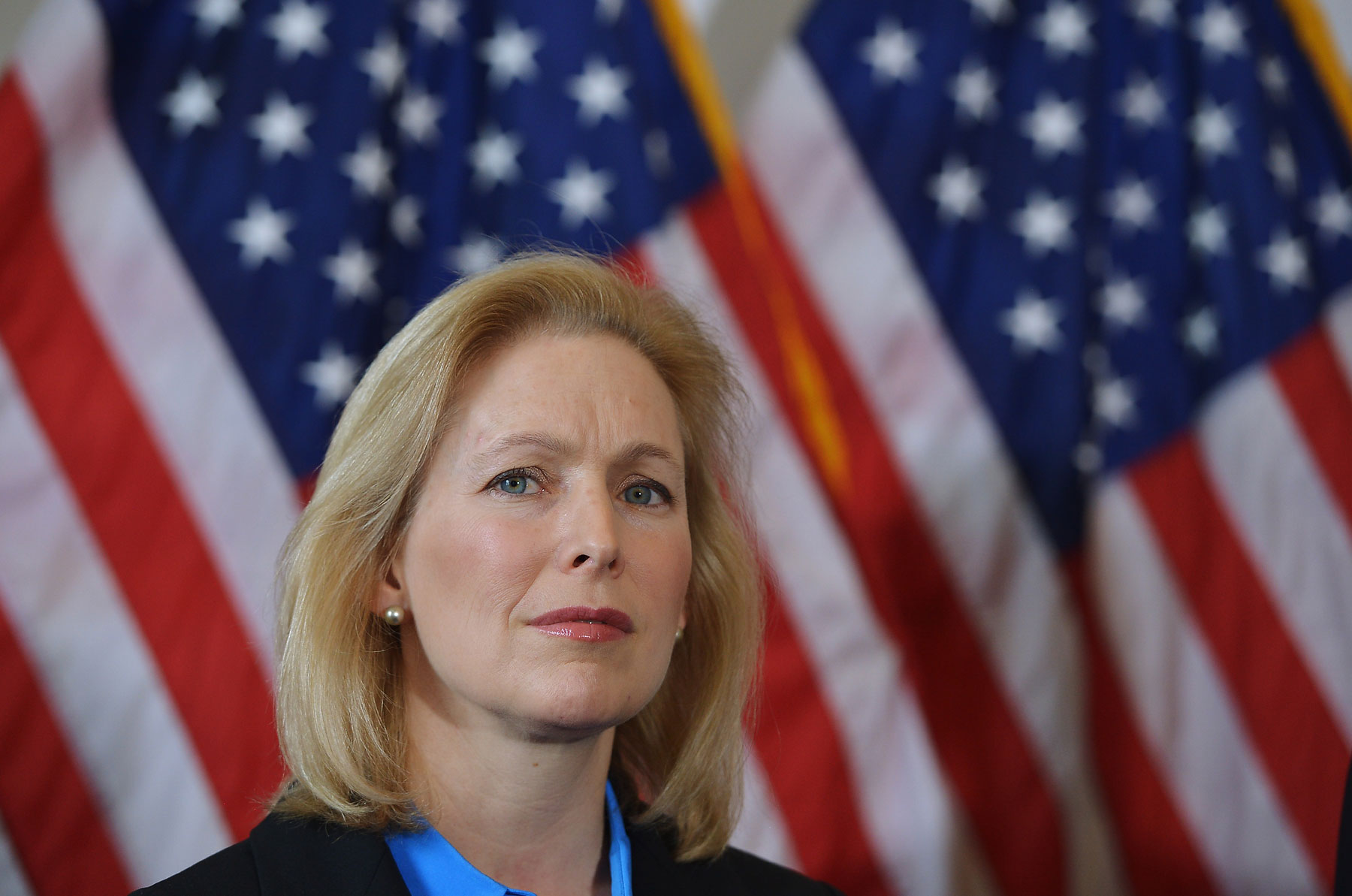
The Pentagon kept running into bad sexual-assault news last week: the Army’s top sex-crimes prosecutor was suspended from his post following a female subordinate’s claim that Lieut. Colonel Joseph Morse groped her at a sexual-assault conference. Army Brigadier General Jeffrey Sinclair pleaded guilty to adultery and possessing pornography on the eve of his trial on sexual-assault charges. Army Sergeant First Class Michael McClendon pleaded guilty in a case accusing him of videotaping female West Point cadets in showers and locker rooms, and was sentenced to 33 months imprisonment.
But none of this seemed to matter across the Potomac River. On Thursday, the Senate derailed a push to reform military justice by stripping commanders of the responsibility for prosecuting sexual assaults and other crimes, and giving it to military lawyers to prosecute. On Monday, the Senate is expected to pass milder reforms.
So what gives? Opponents of last week’s proposal — including the Pentagon and powerful members of the Armed Services Committee — said the change, championed by Senator Kirsten Gillibrand, a New York Democrat, would take too much clout away from commanders in their never-ending effort to promote good order and discipline in their ranks. “Too many of the members of the Senate have turned their back on these victims and survivors,” she said after the vote. She has pledged to try again, perhaps next year after the midterm elections change the Senate’s makeup.
The Senate is expected to approve lesser changes — among them making retaliation against an alleged victim a criminal act and barring commanders from reversing jury convictions — involving sexual assaults in the military. Senator Claire McCaskill, a Missouri Democrat, led the charge for the Victims Protection Act with backing from Democratic Michigan Senator Carl Levin, chairman of the Armed Services Committee, and the Pentagon brass. “This debate has been about one thing: getting the policy right to best protect and empower victims, and boost prosecutions of predators,” McCaskill said. “I believe we’re on the cusp of achieving that goal.”
But it’s worth noting that Gillibrand’s Military Justice Improvement Act lost while garnering 55 Senate votes (including 17 of 20 female Senators) — a majority. That’s because it needed 60 votes to thwart a filibuster. “The American people know that a majority of 100 is 51,” says Eugene Fidell, a lecturer on military law at Yale Law School and former president of the National Institute of Military Justice. He argues that the Pentagon and key lawmakers opposed Gillibrand’s measure because it called for wholesale change in the Pentagon’s legal system, not just those pertaining to sexual assaults. “The military wasn’t worked up when this was about sexual assault,” he says. “The military only got worked up when it was about the role of command.”
One female Army veteran doesn’t think taking decisions whether or not to prosecute from the chain of command is necessarily the answer. “The controversy over sexual assault in the Army will not go away, to my chagrin and those of my fellow soldiers,” says Elspeth Ritchie, who left the service in 2010 as a colonel after 24 years in uniform. “However, the problem will not be solved simply by changing the decision on who prosecutes.” Ritchie, a psychiatrist, believes there is no one-size-fits-all answer. “If we look at sexual assault as an occupational hazard, we see that different strategies are needed for prevention in the varying scenarios.” Alcohol consumption is often a trigger and needs to be curbed, she says. And predators in the ranks need to be rooted out while keeping young soldiers out of situations where predators can strike.
Last year, the Pentagon reported a 35% jump from 2010 to 2012 in reported sexual assaults. Using anonymous surveys, the department estimated that the total number of “unwanted sexual contacts” had risen from 19,300 in 2010 to 26,000 two years later. The persistence of sexual abuse in the U.S. military is a stain that decades of effort have failed to stop or even reduce. It’s a problem that crops up time and again, often unexpectedly, when skimming Pentagon reports.
In 2010, for example, a special Defense Department task force completed a yearlong study into the causes of suicide among members of the military. It dedicated its efforts to those who had killed themselves, and offered several vignettes of what led them to take their lives. One told the tale of an unnamed Army private, the daughter of an Army chaplain:
During her initial advanced individual training, she was raped by a fellow soldier. She told her father that she was afraid to tell anyone about the sexual assault for fear that she would be “judged.” She graduated from training and was transferred to another installation for her first duty assignment. A month after arriving, she was deployed to Iraq … Seven days before she died, a female friend (also a sexual-assault victim) died by suicide in Iraq. The Private did not leave a suicide note, but her journal was discovered lying open to an entry describing the torment, pain and impact of her rape. She died by gunshot wound in Baghdad, Iraq.
She was 19.
More Must-Reads from TIME
- Cybersecurity Experts Are Sounding the Alarm on DOGE
- Meet the 2025 Women of the Year
- The Harsh Truth About Disability Inclusion
- Why Do More Young Adults Have Cancer?
- Colman Domingo Leads With Radical Love
- How to Get Better at Doing Things Alone
- Michelle Zauner Stares Down the Darkness
Contact us at letters@time.com